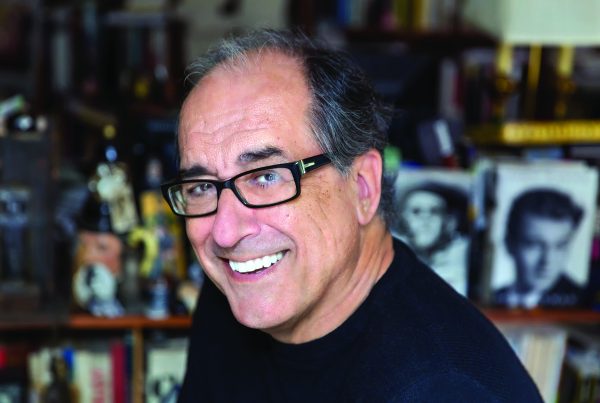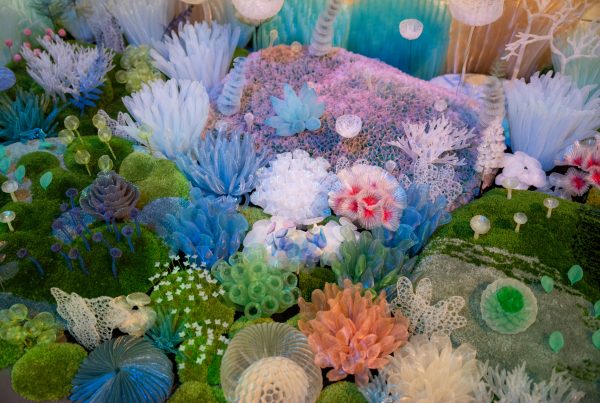
BACKSTAGE PASS I
West Boca’s Slow Burn Theatre’s Company’s 2013-2014 season is chockablock with unusual choices. Co-artistic director Patrick Fitzwater sounds off on all of them.
Next to Normal (Oct. 18-Nov. 2): “The minute we launched the company, I knew that ‘Next to Normal’ was going to be on our bucket list. It spoke to me because I’m not a fan of fluffy musical theater. I’m not a big Rodgers and Hammerstein kind of guy. I really want to leave the theater and feel something. I remember seeing ‘Next to Normal’ and leaving the theater and walking back to the hotel and just feeling that punch in the gut, where you’re like, ‘What just happened? What journey did we just go on?’
“The show has a great run [on Broadway], but it wasn’t mainstream Broadway. When tourists go to Broadway and they have their theater dollars to spend, you’re going to see safe Broadway. There’s so much great theater that people miss just because they didn’t want to spend their tourism dime while they were there. I looked at that one and said, ‘Wow, this deserves a bigger audience at a lower ticket price, because it’s powerful theater.’”
Parade (Jan. 25-Feb. 9): “I got turned on to ‘Parade’ honestly just from the soundtrack. I love Jason Robert Brown. This one talks to me on the fact that it moves very differently – it’s more of a throwback piece, because of the time period and whatnot. I had great ideas the minute I listened to it about trying to move it around like a crime scene. It’s so relevant right now; we get so wrapped up in these crime dramas, like Jodi Arias or Casey Anthony. We get so addicted to the drama that unfolds watching the trial come through, so I thought, what if I took this piece and moved it onstage through the factory like a trial instead of doing it like they did it on Broadway. I’m going to walk that dream through like a crime scene. I think it’ll be fun, and more daring theater.”
Chess (March 21-April 5): “’Chess’ falls right up our alley, being one of those shows that always had its problems. I love taking these shows, like ‘Side Show,’ that have their problems. The book is terrible for ‘Side Show,’ but it was such a challenge to take the book apart, lay the pages across the floor, look at the music, walk up and down the living room, and try to make something of this. ‘Chess’ has great music to it. I think there’s definitely a good show there. It’s just going to be a real fun, rocking night, and it will really pull in a cult audience.”
High Fidelity (June 20-29): “Many people think that when a show gets to Broadway, it’s in its perfect form. I don’t think it’s fair to say that a show didn’t succeed on Broadway because of the material. I’m looking at the direction of it. A friend of mine in St. Louis is friends with the composers of ‘High Fidelity.’ We’re working with them back and forth to try to tweak the plot. It’s almost like workshopping it. That’s why we chose it. If I didn’t have that link with the composers and the scriptwriter and my friend that produced it, I wouldn’t be revisiting it. But I thought there was something there.”
For tickets and information, visit slowburntheatre.org.

BACKSTAGE PASS II
Here’s more from our “Hidden Gem” story.
Roots rock
The bar staff at Nakava (140 N.W. 20th St., 561/395-9888) will always stop what they’re doing and greet new arrivals. This goes a long way to create a welcoming atmosphere, but the space’s interior does a pretty fine job of selling itself as a respite of peace and tranquility. The bamboo walls, the ceremonial masks imported from various Pacific Islands, the acoustic guitars hanging on the walls in every booth just begging to be played – all of these things compel visitors to kick back and stay a while, and maybe partake in an on-site board game or borrow a book from its small but eclectic library.
But mostly, people flock to Nakava to consume the acrid Pacific crop that’s right there in the business’ name: kava. Opened in 2002, Nakava bills itself as the first location on the United States mainland to serve kava, a medicinal root that, after a seven-year growth period, is extracted, washed, pounded and squeezed into a beverage served in wooden half-shells.
Its regulars – which include island émigrés, college students, police officers, doctors, lawyers and anyone who wants to de-stress – don’t drink kava for the taste. Indeed, one of Nakava’s walls is covered with hilarious images of patrons scrunching up their faces after a first sip. Expect your mouth to go a little numb, as if shot with a mild dose of Novocain.
But for many, this acquired taste has proven to be a potent, natural alternative to prescription medications; in May, the world’s first clinical trial, in Australia, supported the use of kava to medicate anxiety. “Kava is for any occasion,” says Jeffery Lal, a former pharmacist from Fiji who has been managing Nakava for most of its existence. “That’s why the island people are more relaxed. We drink kava every day. If you go to a funeral, there’s kava. If you go to a wedding, there’s kava. If you have one or two bowls, you whole day will be nice.”







